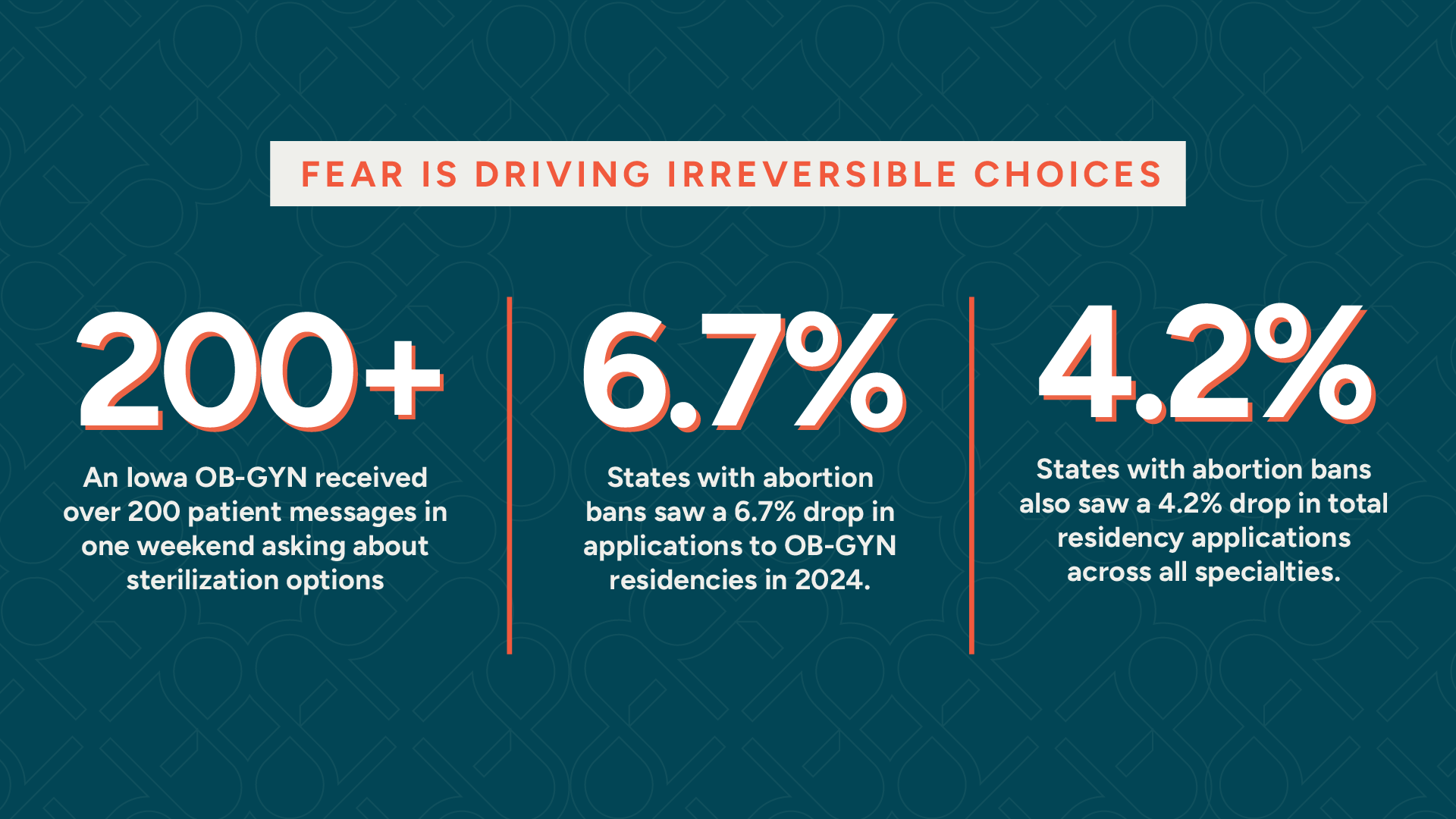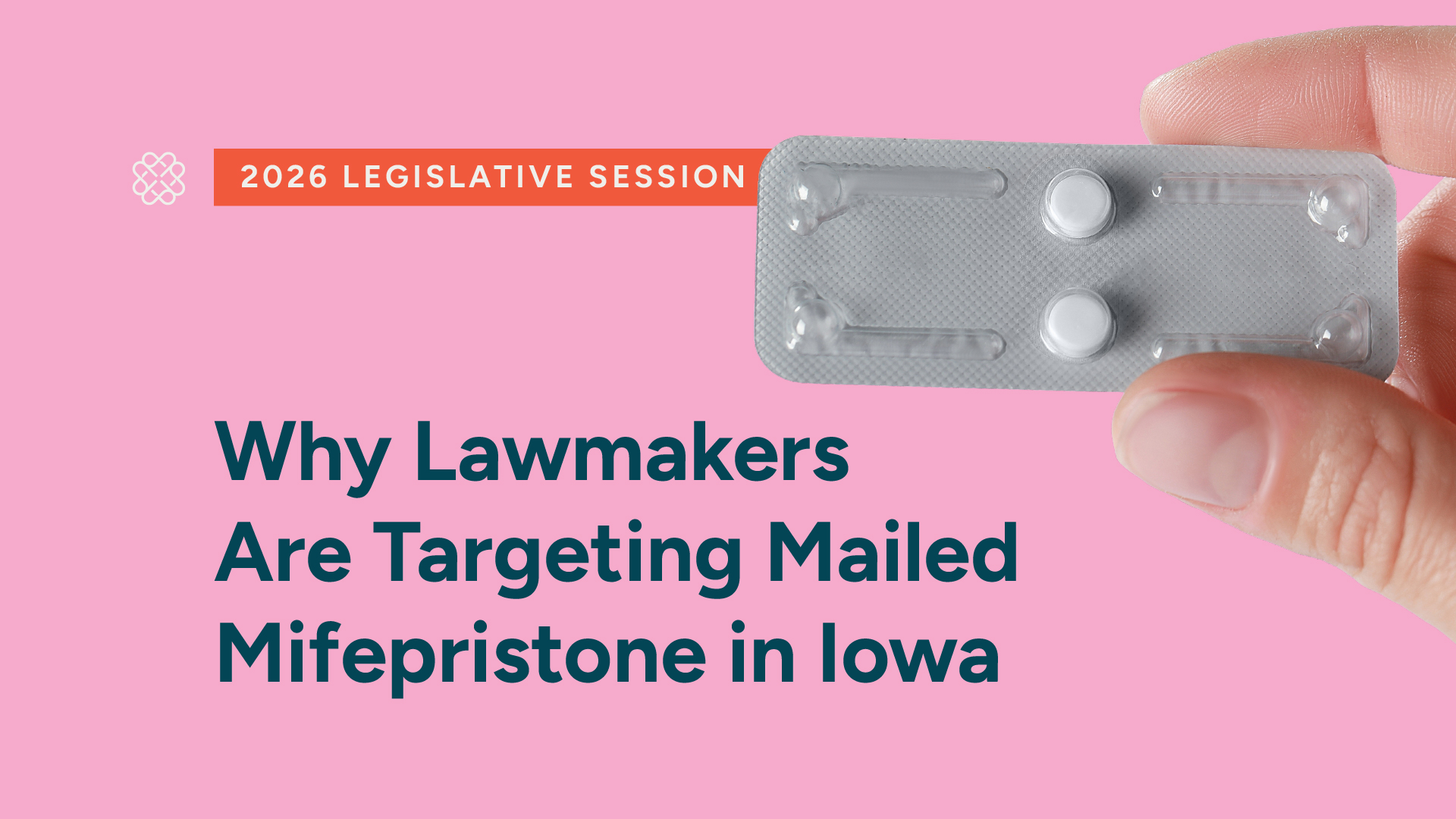
Abortion bans don’t just impact those seeking abortions. In Iowa and other states with restrictive reproductive laws, we’re seeing ripple effects across the entire healthcare system, especially in OB-GYN care. From a surge in patients seeking sterilization to a drop in residency applications from future providers, the consequences are far-reaching and urgent.

A Surge in Elective Sterilization
Since Roe v. Wade was overturned, providers across the country and right here in Iowa, are seeing a sharp rise in requests for permanent birth control procedures like tubal ligations and vasectomies. But many aren’t asking because they’re ready for permanent contraception now. They’re asking because they’re afraid it won’t be an option later.
In one striking example, an Iowa OB/GYN told Iowa Public Radio that she received over 200 patient messages in a single weekend asking about sterilization options. Before the Dobbs ruling, she’d get one or two such requests, at most.

A 2024 study from the George Washington University confirmed the trend:
- In August 2022 alone, there were more than 41,000 Google searches related to sterilization, the highest monthly volume ever recorded
- The largest increase came from young adults aged 20–29, many of whom feared that future legal changes would block access to contraception altogether
Patients are making irreversible choices out of fear, not medical necessity. And that fear stems from uncertainty about what reproductive care will remain legal tomorrow.
Fewer OB-GYNs Are Training in Iowa
The next generation of doctors is also responding to these legal shifts. According to AP News, states with abortion bans saw a 6.7% drop in OB-GYN residency applicants between 2023 and 2024.
Why? Because future OB-GYNs want comprehensive training, including how to manage miscarriage, ectopic pregnancies, and abortion care. When laws limit that training, medical students look elsewhere.
This puts rural states like Iowa in an even tougher position. We already rank among the lowest in the nation for OB-GYN access. And as fewer providers train or stay here, patients lose access to more than just abortion. The same doctors also deliver:
- Prenatal and postpartum care
- Birth control counseling and prescriptions
- Pap smears and cancer screenings
If we can’t train and retain new providers, the gap in care will only grow wider and more dangerous.
The Bigger Picture: Autonomy, Access, and Trust
These trends tell a clear story: when access is restricted, consequences spread far beyond abortion alone. Patients lose options. Doctors leave. Clinics close. And entire communities feel the loss.
We must protect access to comprehensive reproductive healthcare, not just for today’s patients, but for the future of medicine in Iowa.
For more reproductive rights information and updates on Iowa healthcare access, visit our resources page or sign up for our newsletter.
Empower change.
Sign up for our newsletter and stay informed on reproductive healthcare issues in Iowa.




